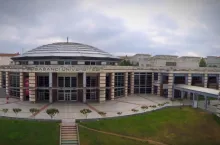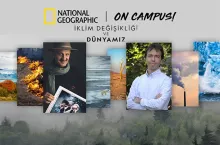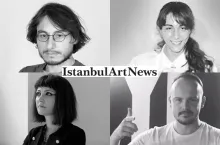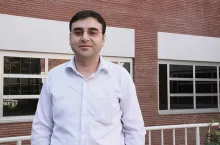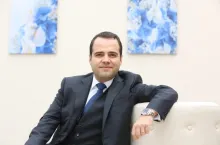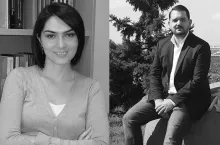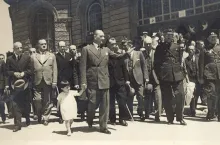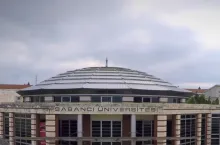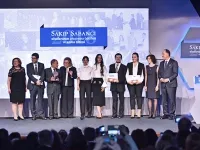Sakıp Sabancı Remembered with the “Sakıp Sabancı International Research Awards” in the 14th Year of His Passing. This year's Jury Prize in the Sakıp Sabancı International Research Awards was given to New York University Faculty Member Adam Przeworski.

Sabancı University Founding Board of Trustees Chair Güler Sabancı:
- We need to prioritize knowledge generation, research, scientific thinking and discussion to enable Turkey to become effective, capable and consistent in finding solutions to regional and global problems. All three areas require that we stand together and act together with the world.
- Sabancı University Honorary Chairman Sakıp Sabancı believed that social sciences deserved the same level of support as natural sciences. Being the visionary he was, he endowed Turkey's only academic prize in social sciences with an international outreach.
- The Columbia University Sakıp Sabancı Center for Turkish Studies opens on May 4th. We believe that the Center will be a crucial reference point for Turkish Studies.
In honor of the late Sakıp Sabancı, Honorary Chairman of the Board of Trustees of Sabancı University, the “Sakıp Sabancı International Research Awards” were presented at a ceremony hosted by the Sakıp Sabancı Family and Sabancı University on Tuesday, April 10, 2018 at the Sabancı Center.
"We need to prioritize knowledge generation, research, scientific thinking and discussion to enable Turkey to become effective, capable and consistent in finding solutions to regional and global problems."
Sabancı University Founding Board of Trustees Chair Güler Sabancı began by saying, "Sabancı University Honorary Chairman Sakıp Sabancı believed that social sciences deserved the same level of support as natural sciences. Being the visionary he was, he endowed Turkey's only academic prize in social sciences with an international outreach."

Güler Sabancı continued, “Turkey has been a bridge between the West and East on the geopolitical and cultural levels, acting as a regional power and global player for world peace since the Ottoman Empire. We need to prioritize knowledge generation, research, scientific thinking and discussion to enable Turkey to become effective, capable and consistent in finding solutions to regional and global problems." Sabancı stated that all three areas required that Turkey stood together and acted together with the world. Güler Sabancı explained that both Sabancı University and the Sakıp Sabancı International Research Awards were based on this fundamental philosophy, saying "This universal perspective is a clear embodiment of the late Sakıp Bey’s vision.”
"The Columbia University Sakıp Sabancı Center for Turkish Studies opens on May 4th. We believe that the Center will be a crucial reference point for Turkish Studies."
Reminding the audience that Sakıp Sabancı thought for Turkey but his thoughts were not limited to Turkey's borders, Güler Sabancı said, “The international aspect of everything he did was very dear to him. The same line of thinking culminated in Sabancı University. We wanted to build an academic organization that commanded international respect and recognition. We set out on this path to become a 'global university' and today we are an organization that is consistently on international rankings."
Güler Sabancı stated that Sabancı University would celebrate its 20th year in 2019, continuing, "We would also like to announce a bold initiative that our young university found the courage to undertake thanks to its international recognition. The Columbia University Sakıp Sabancı Center for Turkish Studies, the perfect place to make the Sakıp Sabancı name eternal, will open in New York on May 4th." Güler Sabancı said that Sabancı University's efforts in social sciences would leap to the next level with this forthcoming international cooperation, adding that the support of Ayşe Kadıoğlu and the entire Sabancı University Faculty of Arts and Social Sciences would make the Center a point of reference for Turkish Studies across the world.
In conclusion, Güler Sabancı said that the theme for the 2019 Awards would be “The Future of Multipartisanism in Global Disorder: Rethinking Security, Economy and Democracy.”
"We share transnational problems which require international efforts to solve."
The winner of the Jury Prize was Adam Przeworski, a veteran of political science who has been working on democracies for over 50 years, and has inspired many younger political scientists in Turkey and the world. Adam Przeworski, the Carroll and Milton Petrie Professor of Politics at New York University, won the Jury Prize with his outstanding work on democratic regimes and markets. Adam Przeworski worked in the most prestigious universities of different continents, trained a vast number of political scientists, and played a key role in shaping the field of comparative politics. He was an advisor to the Latin American Council of Social Sciences, the UN Development Program, and the Organization of American States.
Speaking in the award ceremony, Adam Przeworski said that we shared transnational problems which require international efforts to solve. He noted that the prize was especially relevant to young scientists for continuing their global efforts.

Adam Przeworski continued: "All my life, I tried to find answers to two questions. First: How can people divided by values, norms and interests live together? And second: How can democracy coexist with economic and social inequality? Considering that losing parties have a chance to win in the future, political actors and groups will prefer to stay within the system. The balance between economy and democracy is critical. Research suggests that countries which have attained certain levels of economic development were then able to improve their democracies. Democracy is under threat in all countries. For the first time in two hundred years, many parents believe that their children will be worse off than they are. In the longer term, economic consequences will influence the decision of political actors and groups to remain within the boundaries of democracy."
The three equally-weighted Essay Awards were given to:
- Selim Erdem Aytaç for the essay The Appeal of Populism and the Role of Elite Discourse: Evidence from Turkey
- İpek Çınar for the essay Democracy Dismantled: Strategic Choices of Would-be Autocrats
- Berk Esen” for the essay Elective Affinities between Democratic Backsliding and Populism: the Cases of Turkey and Hungary in Comparative Perspective.
Introductory remarks to the ceremony were delivered by Sabancı University Founding Board of Trustees Chair Güler Sabancı. Sabancı University Faculty of Arts and Social Sciences member Özge Kemahlıoğlu, the president of this year's jury panel, explained the reasoning behind the jury's selection. Kemahlıoğlu said that Adam Przeworski, the winner of the Jury Prize, made great contributions to defining democracy as a political regime, focusing on elections and ambiguity. Accordingly, democracy is a political system where the results of any election is a mere probability for citizens who are unaware of each other's political preferences.
Özge Kemahlıoğlu said that Przeworski's work played a critical part in developing the literature in this field, and noted that countries which have attained certain levels of economic development were then able to improve their democracies, and prevented any subsequent collapse of their democracies.
Following the speeches, Adam Przeworski received his prize from Sabancı University Founding Board of Trustees Chair Güler Sabancı and Sabancı University President Professor Zehra Sayers. Essay Award winners received their prizes from Sabancı University Board of Trustees Member Sevil Sabancı, Melisa Tapan, and Sabancı University President Professor Zehra Sayers.
More than 370 submissions from 31 countries over 13 years
Sakıp Sabancı International Research Awards were established 13 years ago to honor the will of the late Sakıp Sabancı, and are given by Sabancı University in fields including Turkish and Islamic art, and the history, economy and sociology of Turkey. The award program is led by the Sabancı University Faculty of Arts and Social Sciences and the Istanbul Policy Center. Submissions are reviewed by an international panel of independent jury members. In the last 13 years, Sakıp Sabancı International Research Awards have been given in subjects ranging from Turkey's economy to foreign policy, history, and social dynamics. More than 370 submissions were received from 31 countries for the 13 Awards given so far.
Starting in 2015, the Board of Trustees and Sakıp Sabancı Family resolved to give the Sakıp Sabancı International Research Awards as part of the Remembrance Ceremony. Award themes in previous years were other pressing issues such as “Checks and Balances in Democracy: the Turkish Case from a Comparative Perspective,” “Gender Equality in Turkey,” "Coexisting in Turkey: Diversity, Dialog and Cooperation", and "New Centers in Turkey: Economy, Education, Arts and Peace in Cities”. The 2017 Awards were given in “Europeans with Legacies from Turkey in Everyday Life”, and this year's theme was “Democratic Governance and Threats against Coexistence in Turkey and the World.”
In the tradition of the previous awards, the 2019 Sakıp Sabancı International Research Awards will seek to support scholars, particularly young social scientists, discussing a current issue on an academic level. The theme for the 2019 Awards will be “The Future of Multipartisanism in Global Disorder: Rethinking Security, Economy and Democracy.”
Jury Panel
The president of this year's Jury Panel was Sabancı University Faculty of Arts and Social Sciences member Özge Kemahlıoğlu. The international jury panel consisted of Sabancı University Istanbul Policy Center Director Fuat Keyman, Sabancı University Faculty Member Ayşe Kadıoğlu, John D. Huber from Columbia University, Milan Svolik from Yale University, Dr. Dimitar Bechev from The University of North Carolina, and Ellen Lust from Gothenburg University.
About Adam Przeworski
Adam Przeworski is Carroll and Milton Petrie Professor of Politics at New York University.
After graduating from the Philosophy and Sociology Department at University of Warsaw, he received PhD degrees in Political Science from Northwestern University and Sociology from Polish Academy of Sciences. He previously taught at University of Chicago and Washington University. Among others Professor Przeworski is the recipient of the Johan Skytte Prize and Woodrow Wilson Book Prize.
Professor Przeworski contributed to the studies on democracy by analyzing the empirical relationship between economic factors and political regimes, economic outcomes under democratic rule, the theoretical definition of political regimes, and the strategic choices of political actors who are involved in the transition process.
His books include Capitalism And Social Democracy, Democracy And The Market: Political And Economic Reforms In Eastern Europe And Latin America, Democracy And Development: Political Regimes And Material Well-Being In The World, 1950-1990, Capital Democracy and the Limits of Self-Government, Why Bother with Elections?

